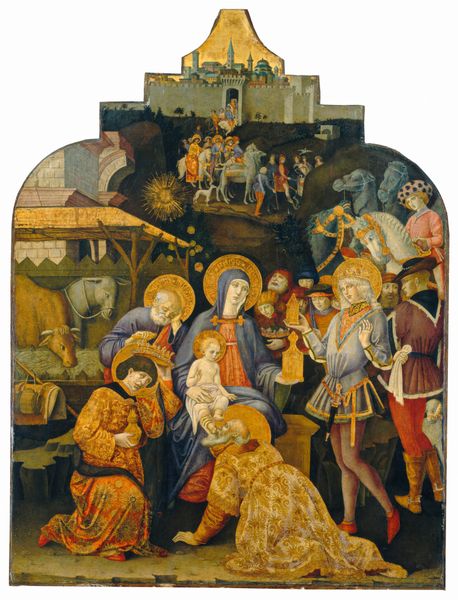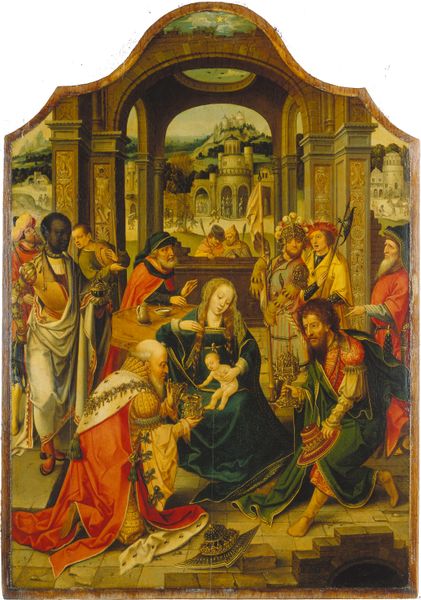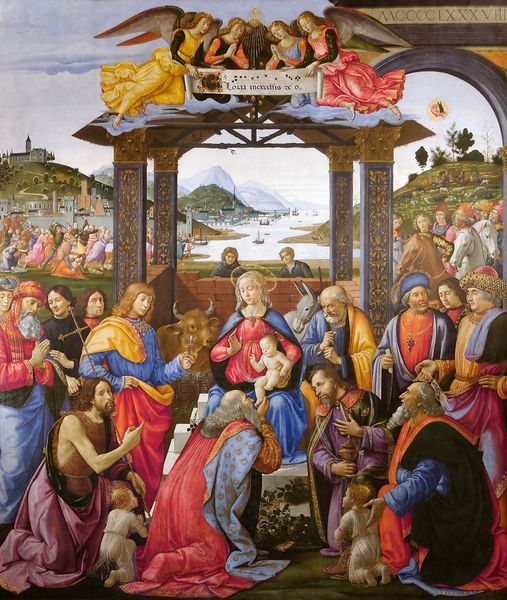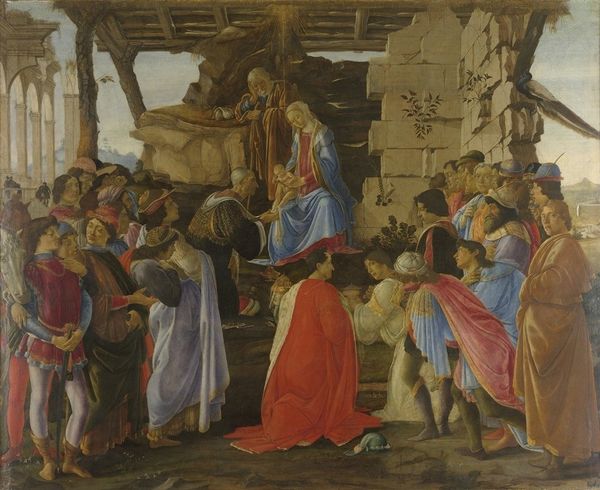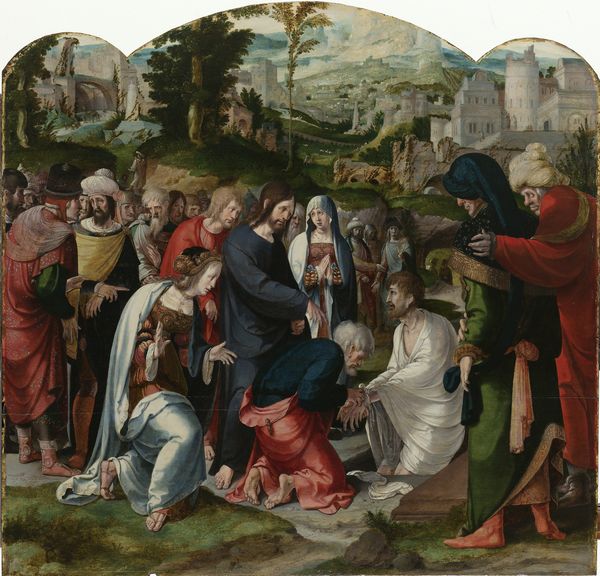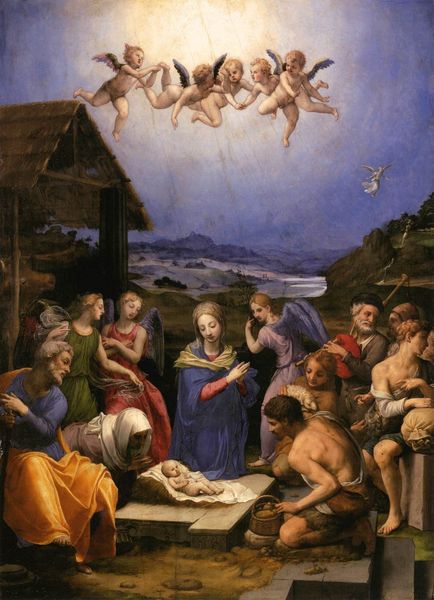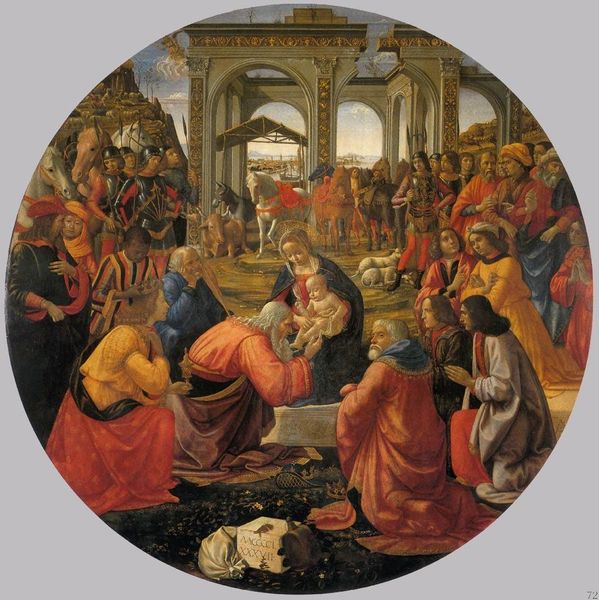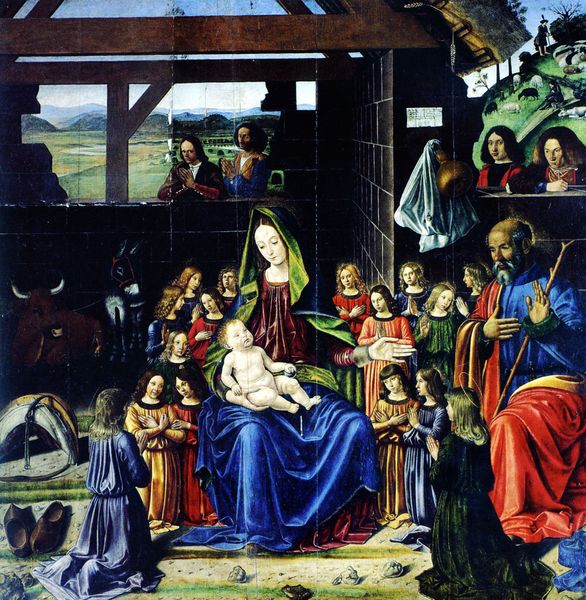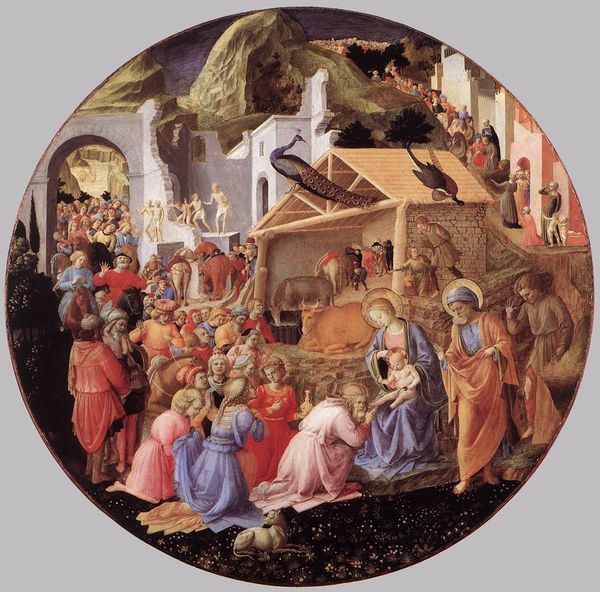
painting, oil-paint
#
narrative-art
#
painting
#
oil-paint
#
figuration
#
oil painting
#
group-portraits
#
mythology
#
genre-painting
#
history-painting
#
italian-renaissance
#
early-renaissance
Copyright: Public domain
Filippino Lippi painted this Adoration of the Magi with tempera on wood, a traditional medium of the Italian Renaissance. Look closely at the rendering of textures and the way the paint is carefully applied in layers. The painting isn't just an image; it’s a crafted object, made possible by a whole system of labor. Think of the grinding of pigments, the preparation of the wood panel. Each step relies on specialized skills and materials sourced from distant places, reflecting the economic realities of 15th-century Florence. Consider, too, the symbolism of the Magi's gifts - gold, frankincense, and myrrh. These materials had inherent value, representing wealth, luxury, and the spice trade that fueled the Renaissance economy. Lippi's choice to depict these luxurious goods serves as a reminder of the resources required for their creation. By considering the materials, processes, and context of this painting, we can move beyond a simple appreciation of its beauty and toward a deeper understanding of its cultural significance.
Comments
No comments
Be the first to comment and join the conversation on the ultimate creative platform.

